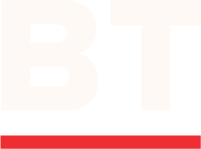In the early 1980s, Philip and Gayle Tauber were living in Southern California and decided that they wanted to start a company focused on helping people eat more healthfully. They pitched their idea for a natural foods business to their bank, but were rejected for a business loan. Instead, the couple invested their life savings of $25,000 to start Kashi. The name of the business is a conglomeration of two words: Kashruth, which refers to Jewish religious dietary laws/the state of being kosher, and Kushi, which was included as a reference to Michio Kushi, an influential Japanese teacher who shared his knowledge about the macrobiotic diet with Americans in the 1960s. Kashi launched its first product in October 1983. It was a breakfast blend of seven whole grains and sesame seeds called Kashi Pilaf. However, it had to be heated for 25 minutes and initial sales were poor. Then during the 1984 Summer Olympics in Los Angeles, Kashi offered product samples, a move that helped garner them a small but loyal fanbase of athletes and health-conscious consumers. Eventually, the company rolled out their line of cereals. Kashi is especially well-known for their shredded wheat cereals and their GOLEAN line, which was recently renamed Kashi GO and was one of the first cereals to incorporate plant-based protein when it debuted roughly 20 years ago. In 2000, Kellogg’s purchased Kashi. In 2012, Kashi came under fire for their use of the term “natural.” It is not regulated by the FDA and some consumers felt it was misleading. Ultimately, the company paid out several million dollars in class action lawsuits and removed the term from their packaging along with the phase “nothing artificial.” (It’s worth noting that today, Kashi products are Non-GMO Project Verified.) In 2016, Kashi announced a new collaborative effort to support farmers making the time-consuming and expensive transition to organic agriculture. Kashi worked with the organic certifier Quality Assurance International (QAI) to develop a new protocol called Certified Transitional, then purchased the first crop of Certified Transitional ingredients (a hard red winter wheat, which the company used to make a shredded wheat cereal). Today, Kashi is still a significant presence in health foods aisles all across the country and its cereals and other products have many loyal fans.

Your go-to guide for weird history facts
Subscribe to the FREE daily email that makes learning about history fun.


